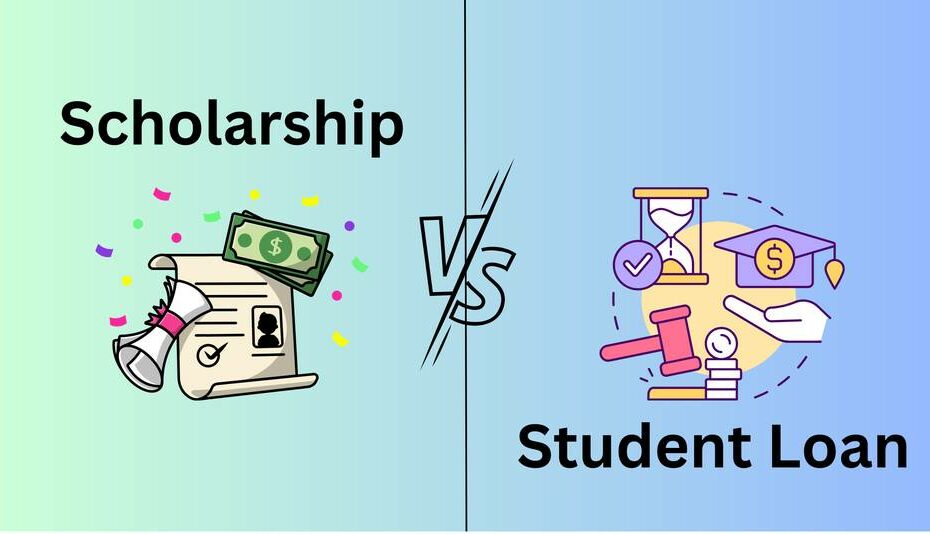
Scholarship vs. Student Loan: Which One is Right for You?
Higher education is an important investment, but it often comes with significant financial challenges. To cover tuition and other expenses, students typically rely on either scholarships or student loans. Both options provide financial assistance, but they work in very different ways.
Scholarships offer free money that doesn’t need to be repaid, while student loans require repayment with interest. Choosing between them—or using a combination of both—can impact your financial future. Understanding the pros and cons of each will help you make an informed decision.
What is a Scholarship?
A scholarship is a financial award given to students based on merit, need, or other criteria. It is essentially free money that does not have to be repaid. Scholarships can come from universities, government programs, private organizations, or charitable foundations.
Types of Scholarships
Scholarships vary based on eligibility and purpose. Some of the most common types include:
Merit-based scholarships: Awarded for academic excellence, leadership, or artistic talent.
Need-based scholarships: Given to students from low-income backgrounds.
Athletic scholarships: Provided to students with exceptional sports abilities.
Subject-specific scholarships: Offered to students pursuing certain fields of study, like STEM or the arts.
Diversity scholarships: Designed for underrepresented groups in education.
Scholarships can fully or partially cover tuition, books, and even living expenses, depending on the program.
Pros and Cons of Scholarships
Advantages
One of the biggest benefits of scholarships is that they do not require repayment, making them an ideal way to fund education without accumulating debt. Additionally, earning a scholarship can enhance a student’s resume, demonstrating achievement and dedication.
Challenges
The main drawback is competition. Many scholarships have strict eligibility requirements and a limited number of recipients. The application process can also be time-consuming, requiring essays, recommendations, and academic records.
What is a Student Loan?
A student loan is borrowed money used to pay for education, which must be repaid with interest. Loans can come from the government or private lenders.
Types of Student Loans
Federal student loans: Offered by the government with lower interest rates and flexible repayment options.
Private student loans: Provided by banks or financial institutions, often with higher interest rates.
Pros and Cons of Student Loans
Advantages
Student loans make education accessible when scholarships and personal savings are not enough. They allow students to attend college without immediate financial pressure, offering repayment plans that begin after graduation.
Challenges
Unlike scholarships, loans create debt. Depending on interest rates and repayment terms, some students end up paying much more than they initially borrowed. Loan repayments can also be burdensome, impacting financial stability after graduation.
How to Decide Between a Scholarship and a Student Loan
If you have the opportunity to secure scholarships, they should always be your first choice, as they reduce or eliminate financial burden. However, if scholarships do not cover all expenses, student loans can help bridge the gap.
Finding the Right Balance
Apply for multiple scholarships to maximize financial aid.
Consider a mix of scholarships, grants, and part-time work before resorting to loans.
If taking a loan, choose federal loans first due to lower interest rates and better repayment terms.
Both scholarships and student loans offer ways to finance education, but they come with distinct advantages and challenges. Scholarships provide free financial aid, while loans require repayment. Choosing the right path depends on your financial situation, eligibility, and long-term goals.
By carefully exploring both options, students can make informed decisions that minimize debt and maximize opportunities for a successful future.









